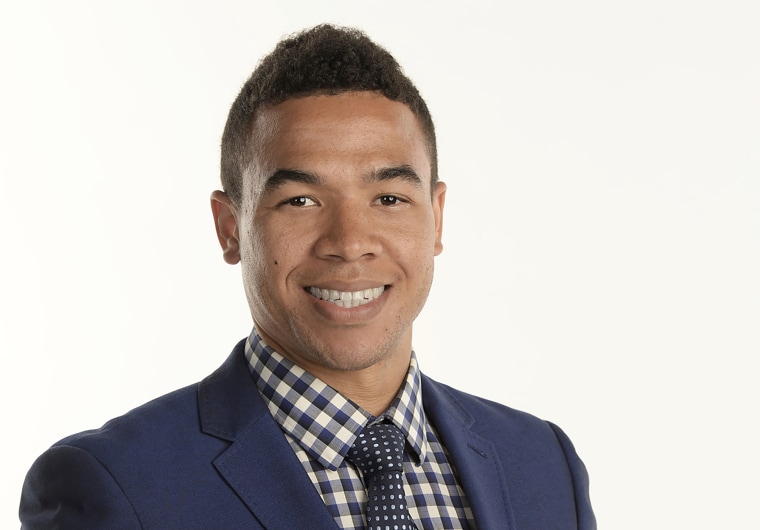Edward Aschoff, the ESPN college football reporter who died on Tuesday, was suffering from more than pneumonia, his fiancée revealed. Aschoff had recently received another diagnosis: HLH.
Aschoff tweeted about his pneumonia on Dec. 5, referring to himself as someone "who never gets sick and has a very good immune system."
He went to the emergency room but had to return after antibiotics failed to work and his symptoms worsened, his fiancée, Katy Berteau, tweeted from his account Thursday.
HLH, or hemophagocytic lymphohistiocytosis, was suspected “after many tests — bone marrow and lung biopsies,” she wrote. “Treatment was started for a presumed diagnosis of HLH.”
"Within 3 days of being moved into the ICU, he passed," Berteau tweeted.
He was 34. The two were set to be married in April.
What is HLH?
HLH is a life-threatening disorder in which the body makes too many activated immune cells, leading to “an excessive immune response” where the cells attack the body itself rather than bacterial and viral invaders, according to the Genetic and Rare Diseases Information Center.
The immune cells build up in organs including the skin, spleen and liver, and destroy other blood cells, the National Cancer Institute says.
"HLH can be very difficult to diagnose because it's a disease that can affect different organs," Dr. Humberto Choi, a pulmonologist at the Cleveland Clinic, told NBC News. "It can be confusing for doctors because sepsis can cause similar symptoms."
Who gets HLH?
The disorder is rare, with an estimated one case per 50,000 births worldwide per year, according to the Immune Deficiency Foundation.
It can be inherited as a genetic mutation, with familial or primary HLH accounting for about 25 percent of cases, according to Johns Hopkins Medicine. Children with this type of HLH often get sick in the first few years of life.
In other patients, it can be triggered by certain conditions such as the Epstein-Barr virus and other infections, medications that suppress the immune system, autoimmune diseases, a weak immune system and cancer. This is called acquired or secondary HLH.
It could have been something that Aschoff had before and then developed pneumonia as a consequence, or the pneumonia could've triggered the HLH, said Choi, who didn't treat the ESPN reporter, but commented in general.
In adults, it's more common for HLH to be triggered by an infection or another condition than the other way around, he noted.
What are the symptoms?
The Genetic and Rare Diseases Information Center lists the following warning signs:
- prolonged fever
- enlarged liver or spleen
- skin rash
- lymph node enlargement
- breathing problems
- easy bruising or abnormal bleeding
- kidney abnormalities
- heart problems
- neurological symptoms, including irritability, fatigue, seizures and mental status changes
It can be common for people to need a blood transfusion because the red and white blood cell count can drop so low, Choi said. HLH be life-threatening because it involves multiple vital organs, including the brain, liver and lungs, he added. Patients are typically admitted to the ICU or at least hospitalized.
What is the treatment?
Doctors can diagnose the condition with the help of blood tests or a genetic test, along with the presence of typical symptoms. A bone marrow biopsy, which Aschoff’s fiancée referred to in her tweet, can also be used to confirm a diagnosis.
When patients are sick with acquired HLH, doctors treat the underlying condition that triggered the exaggerated immune response. Antibiotics or antiviral medications are given to treat an infection, for example. After the patient is stable, medications similar to chemotherapy are used to treat HLH, Choi said.
Patients with inherited HLH require a stem cell transplant “as early in life as possible,” the Genetic and Rare Diseases Information Center noted. This procedure is considered a cure for familial HLH.

